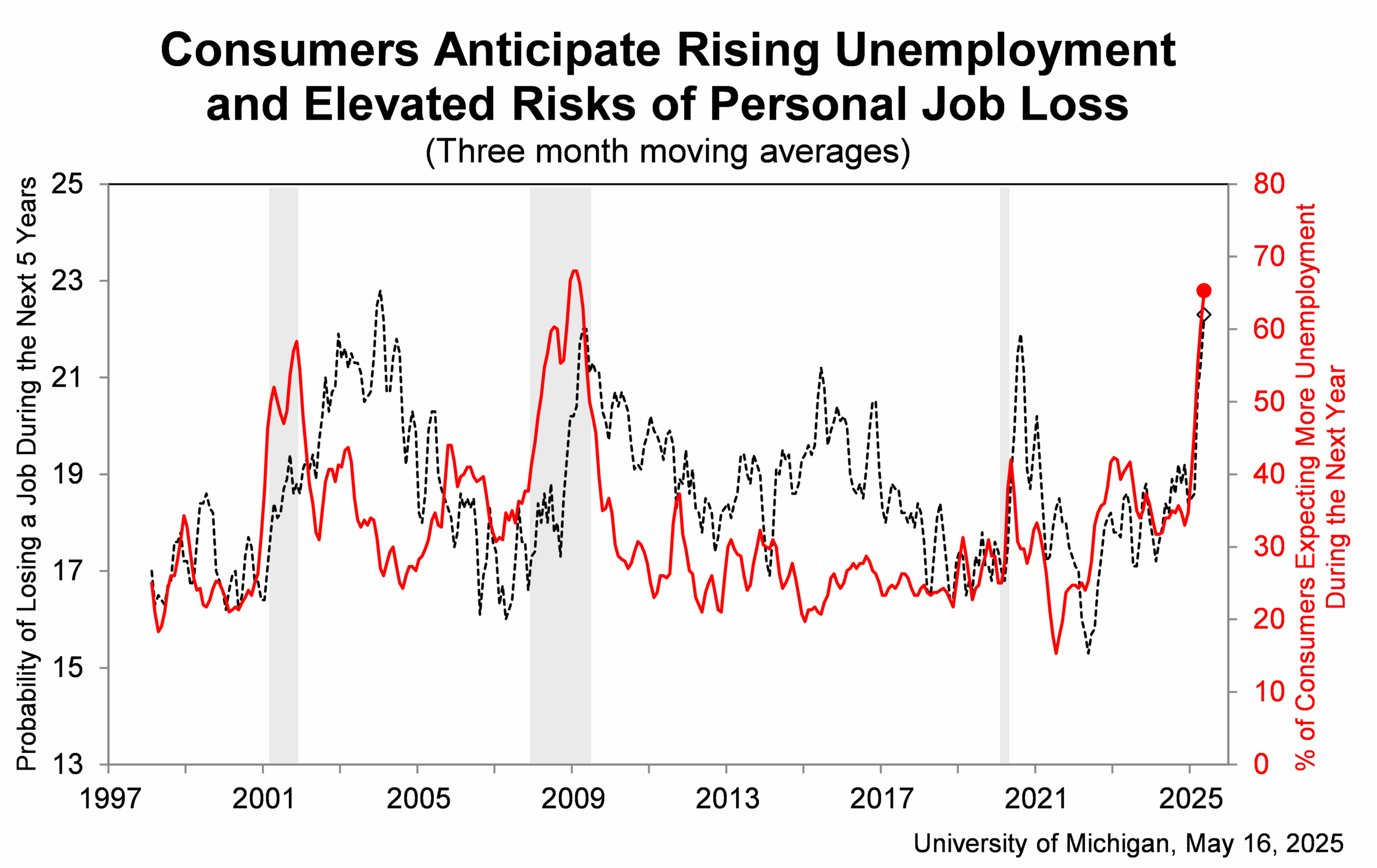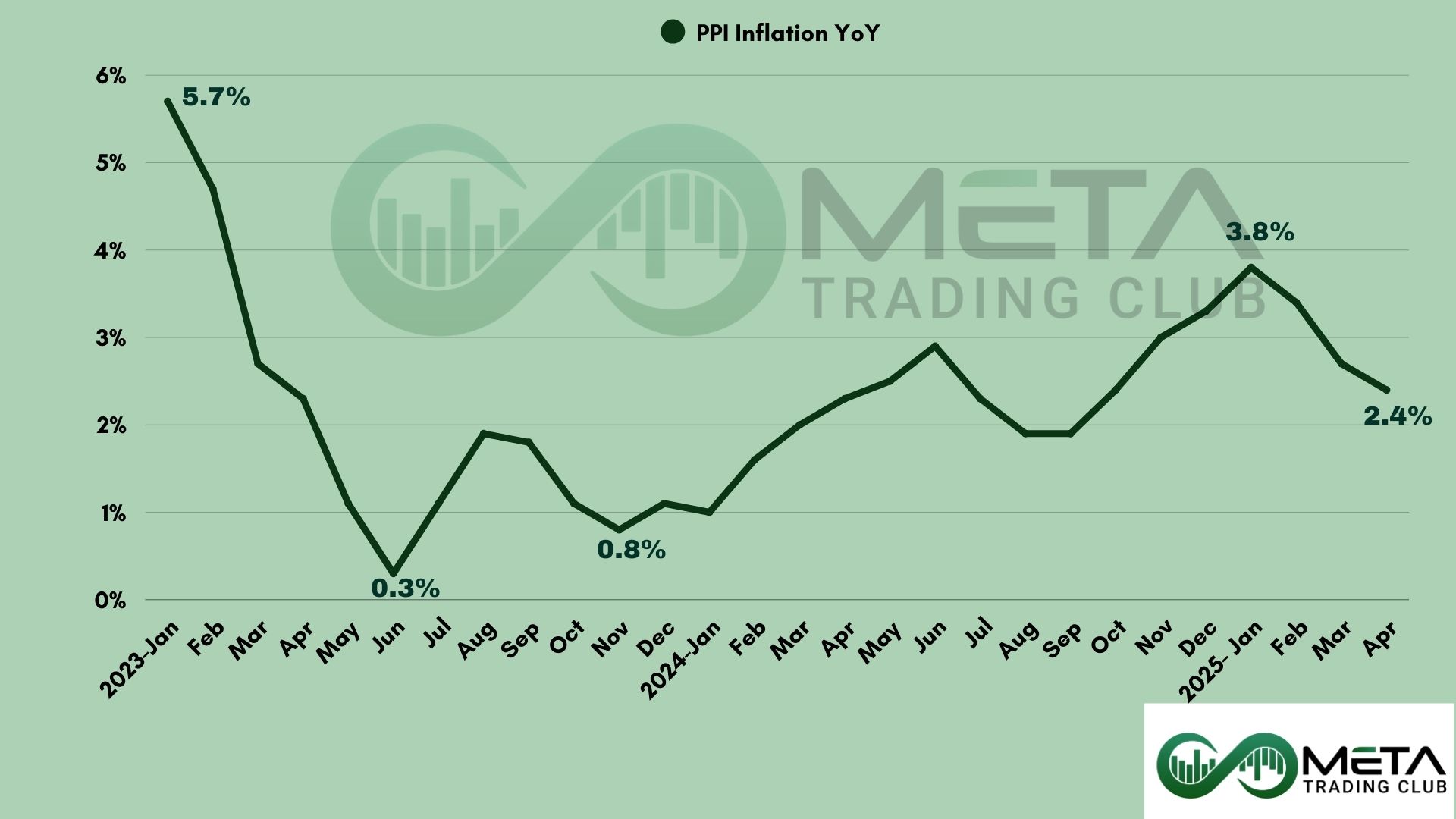The Michigan Consumer Sentiment Index (MCSI) is a monthly survey conducted by the University of Michigan that measures consumer confidence levels in the United States. The survey gathers data through telephone interviews, focusing on consumer expectations for the economy, their current financial health, and the prospects for longer-term economic growth.
Consumer sentiment is considered a valuable economic indicator as it reflects the overall health of the economy based on people’s opinions and feelings. The MCSI takes into account short-term and long-term economic expectations, providing insights into consumer spending and saving behavior
Michigan Consumer Sentiment: May 2025
Consumer sentiment remained largely unchanged this month, decreasing slightly by 1.4 index points following four consecutive months of sharp declines. Since January 2025, sentiment has fallen nearly 30%, highlighting ongoing concerns over economic conditions.
While sentiment among independent voters saw minor improvements, Republican respondents reported a 7% decline in confidence. Personal financial assessments saw a notable dip, with a 10% drop attributed to weakening incomes. Additionally, uncertainty surrounding trade policies and tariffs has intensified, affecting consumer outlook.
Tariffs were a major concern for consumers, with nearly 75% mentioning them, up significantly from 60% in April. This increase reflects continued uncertainty regarding trade negotiations, particularly regarding imports from China. Although there was a brief pause in some tariffs announced on May 12, survey responses suggest this temporary relief has had minimal impact on consumer sentiment.
Source: University of Michigan
Inflation Expectations
Inflation expectations continued to rise:
- Year-ahead inflation expectations climbed from 6.5% last month to 7.3% in May.
- Long-run inflation expectations increased from 4.4% to 4.6%, with a particularly sharp rise among Republican respondents.
Impacts of the Report on Stock Market
The University of Michigan Consumer Sentiment Report has a significant impact on the stock market. By declining consumer sentiment, it signals weaker consumer spending, which can negatively affect corporate earnings and overall economic growth.
When people feel less confident about the economy, they tend to spend less, which can hurt businesses and slow growth. Investors might get nervous, leading to market ups and downs, especially for companies that rely on consumer spending, like retail and travel.













